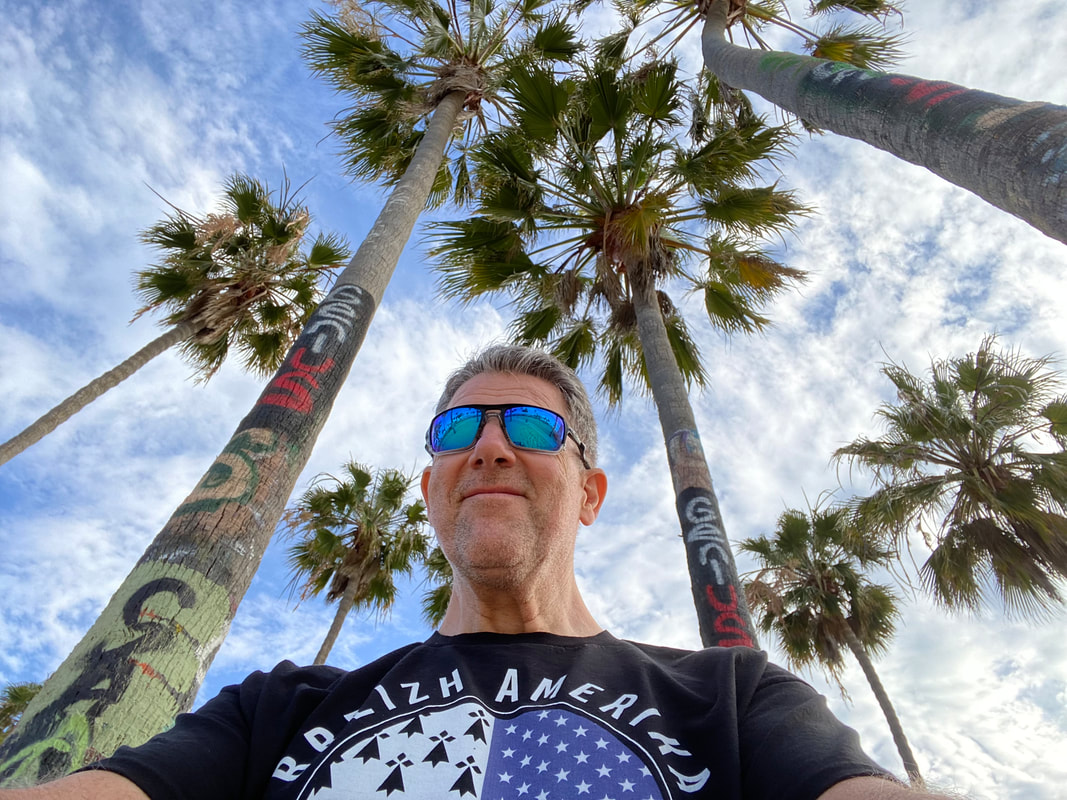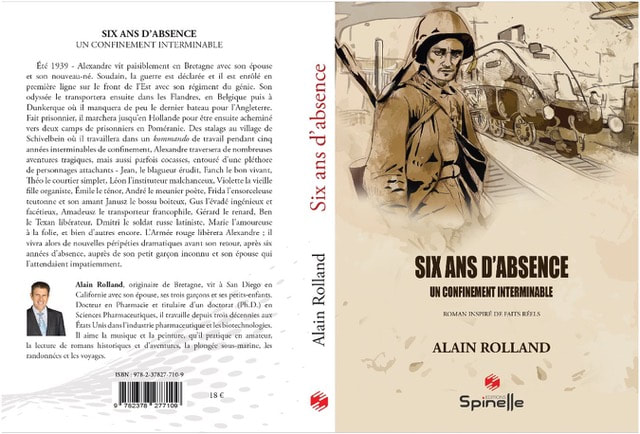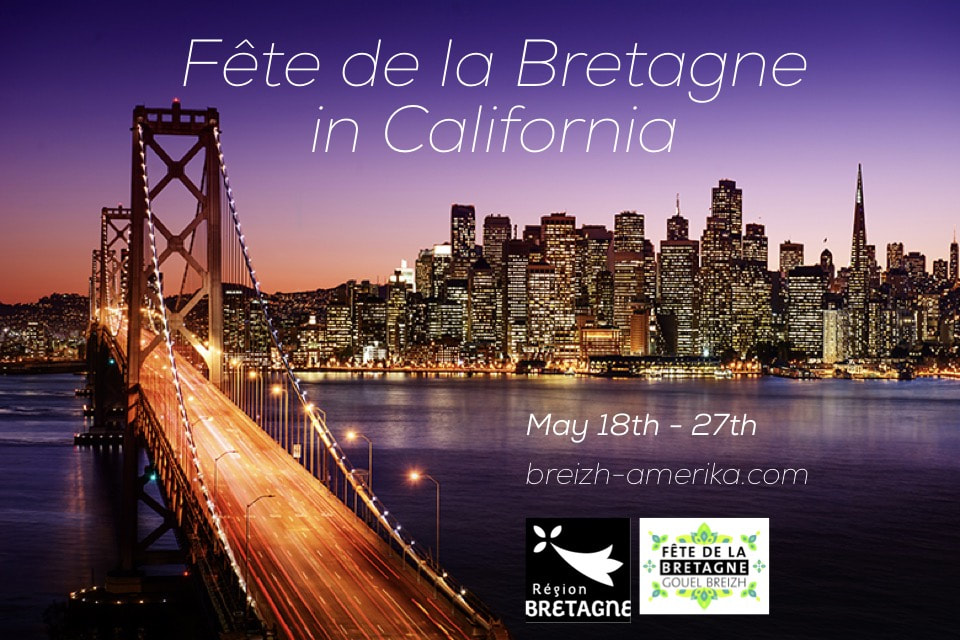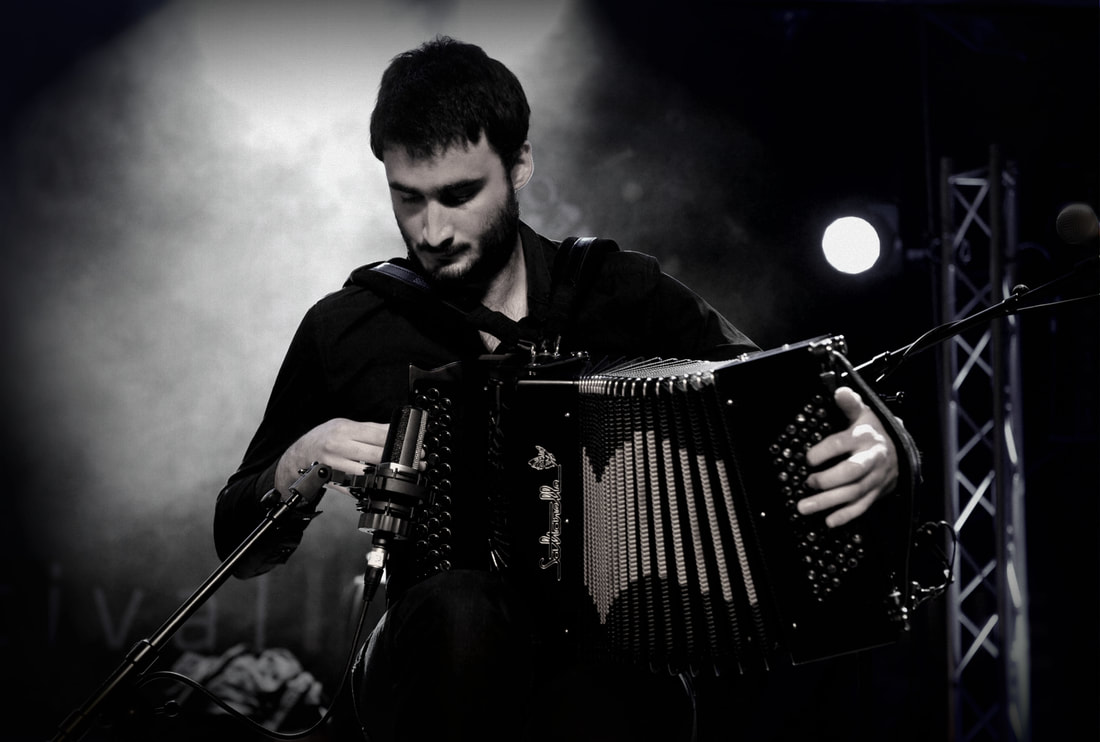Breizh Amerika Profile : Alain RollandWe are delighted to share a new story in our Breizh Amerika Profile series, which highlights members who connect the United States and Brittany. Today, we have the pleasure of introducing Alain Rolland, who lives in San Diego. Alain shares with us his experience as an expatriate, his latest book, and his future projects. Read on to discover how Alain continues to maintain strong ties between Brittany and the United States through his passion for writing. [Breizh Amerika] What is your link to Brittany? [Alain] I was born and raised in Brittany. My parents both spoke Breton and were from Landivisiau (Finistère) where I lived for about 20 years until I got married. My five brothers and sisters spent their entire lives in Brittany. When I was 8 years old, I learned how to play the ‘bombarde’ in the local ‘bagad’ (Breton marching band). I played in many festivals and even had the opportunity to play at a televised Christmas mass. As a teenager, I was a member of a local Celtic band (Penn Dologed, then Gleskeret) where I played the ‘bombarde’, flute and saxophone at ‘fest-noz’ (dancing night party) and concerts, even abroad. I later joined a folk-rock band (Comedie Humaine) and played on the radio and at the Golf Drouot in Paris, while continuing to play the ‘bombarde’ in concerts accompanied by the organ in many churches around Brittany. I studied Pharmacy at Rennes University and graduated as a Doctor in Pharmacy in 1981. After obtaining a DEA in Pharmacokinetics, I did my Ph.D. studies at the School of Pharmacy in Rennes on a novel nanotechnology that I invented and developed all the way to a clinical trial in cancer patients. When did you arrive in California and why? After obtaining my Ph.D. in 1987, I joined the brand-new Advanced Drug Delivery Research center of one of the world’s largest pharmaceutical companies (Ciba Geigy, now Novartis) in the UK. With my wife and two young children, we spent two years abroad; our third son was born in England. In 1989, I returned to France and joined another pharmaceutical company in Sophia Antipolis. After living in the South of France for almost five years, I was offered the opportunity to move to the USA to join a biotech startup in Texas as one of the very first employees. I accepted the challenge to leave everything behind and move with my family from the French Riviera to Houston to start one of the first gene therapy companies in the world. At GeneMedicine, I led the discovery and development of several gene therapies for cancer and cardiovascular applications. After nine years in Texas, I was offered an executive position in San Diego, California in another publicly traded gene therapy company developing immuno-oncology products and genetic vaccines. Therefore, in 2002 we all moved to California where we have lived for the past 20 years. Today, after working as CSO, COO and CEO for different pharma/biotech companies in San Diego, I am still active in the therapeutic space. I have four grandchildren, a boy and a girl in San Diego and another boy and girl in Texas. Can you tell us about your new book? Why did you decide to write it? At the beginning of the Covid-19 pandemic, confined at home, I was sorting through some old papers, and I stumbled upon a few hand-written pages from my dad (who passed away 25 years ago). In those couple of pages, he reported his odyssey through World War II (with locations and dates, and a few anecdotes). For some reason, I felt compelled to start writing a historical fiction, based on his journey and true events. I took an immense pleasure in searching through documentation, learning about the places he had crossed and the major events of that period. I imagined a flurry of intertwined stories and characters (Jean, the erudite joker; Fanch, the bon vivant; Théo, the simpleton hostler; Léon, the unfortunate teacher; Violette, the spinster organist; Émile, the tenor; André, the poet miller; Frida, the Teutonic bewitcher and her lover Janusz, the lame hunchback; Gus the ingenious and facetious escapee; Amadeusz the Francophile haulier; Gérard, sly as a fox; Ben, the Texan liberator; Dmitri, the Russian soldier and Latin scholar; Marie, the madly in love, and many more… The book, written in French, is titled “SIX ANS D’ABSENCE – Un confinement interminable”. Summer 1939, Alexandre lives peacefully in Brittany with his wife and newborn child. Suddenly, war is declared. He is enlisted on the Eastern Front line with his engineer regiment. His odyssey will then take him to Flanders, Belgium and Dunkirk where he misses the last boat for England. Taken prisoner, he has to walk to Holland to then be transported to two prison camps in Pomerania. From the stalags to the village of Schivelbein, where he works in a Kommando for five interminable years of confinement, Alexandre will go through many tragic, but also sometimes comical adventures, surrounded by a plethora of endearing characters. The Red Army will liberate Alexandre; he then experiences new dramatic adventures before his return, after six years of absence, to his unknown little boy and his wife who were impatiently waiting for him. After 30 years spent in the USA, writing a novel in French was a significant challenge but the historical fiction, “Six Ans d’Absence”, is finally published in France. It is available to order at the Editions Spinelle, Paris and also at Amazon.Fr; for people in France, one can also order it at the FNAC or any bookstore. I have also adapted the book in English which was another interesting experience because of the language-specific idioms, the alexandrines from André the miller, the jokes and other items not directly translatable. Although there are many books taking place during WWII, I do hope to be able to find a literary agent who will accept the challenge to help me get that story now published in English. What do you miss from Brittany the most? First and foremost, I miss the family and friends. When we go back to Brittany, we enjoy spending time with them, going to the beach to look for seashells or in the woods to pick up mushrooms, then playing cards and games in the evenings. The amazing food from Brittany, and other French regions, is also one of the things I miss. Even though California has some decent (but expensive) French restaurants, bakeries and grocery stores, nothing can replace a traditional meal in Brittany. I miss everything from the bread and butter, pastries, ‘crêpes’ and ‘galettes’, seafood (crabs, oysters from Cancale, shrimps and ‘langoustines’), various pâtés and rillettes, and so many more dishes… Even though my wife is a true ‘cordon bleu’ and even cooks ‘Kig ha farz’, the American ingredients end up being somewhat different. Finally, I also miss the Breton culture and the Celtic music, the beautiful countryside and coastline, the old villages of Brittany with their granite steeples, the unique scent of the ocean and seaweeds, and the salty wind and drizzle. I miss…Brittany!
0 Comments
Fête de la Bretagne in California |
Categories
All
Blog Archives
June 2024
Breizh Amerikais an organization established to create, facilitate, promote, and sponsor wide-ranging innovative and collaborative cultural and economic projects that strengthen and foster relations and cooperation between the United States of America and the region of Brittany, France. |
Copyright 2014 - All rights reserved - Breizh Amerika - Privacy Policy




 RSS Feed
RSS Feed

